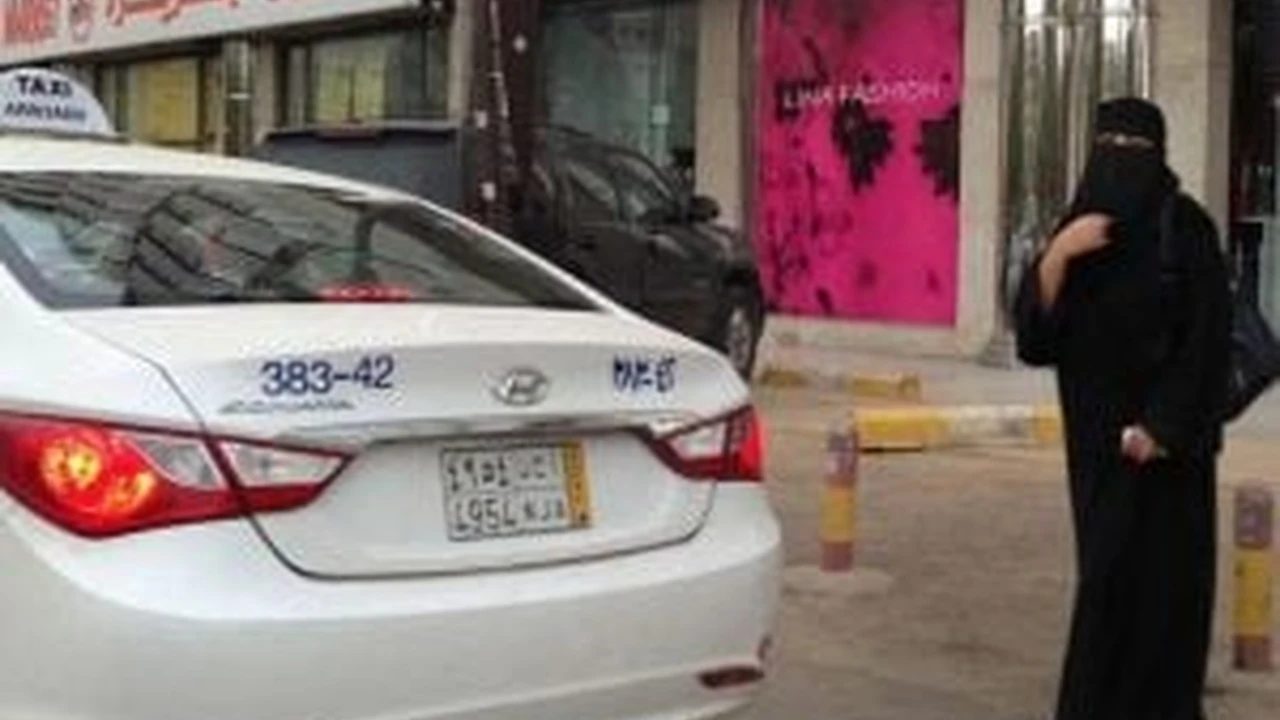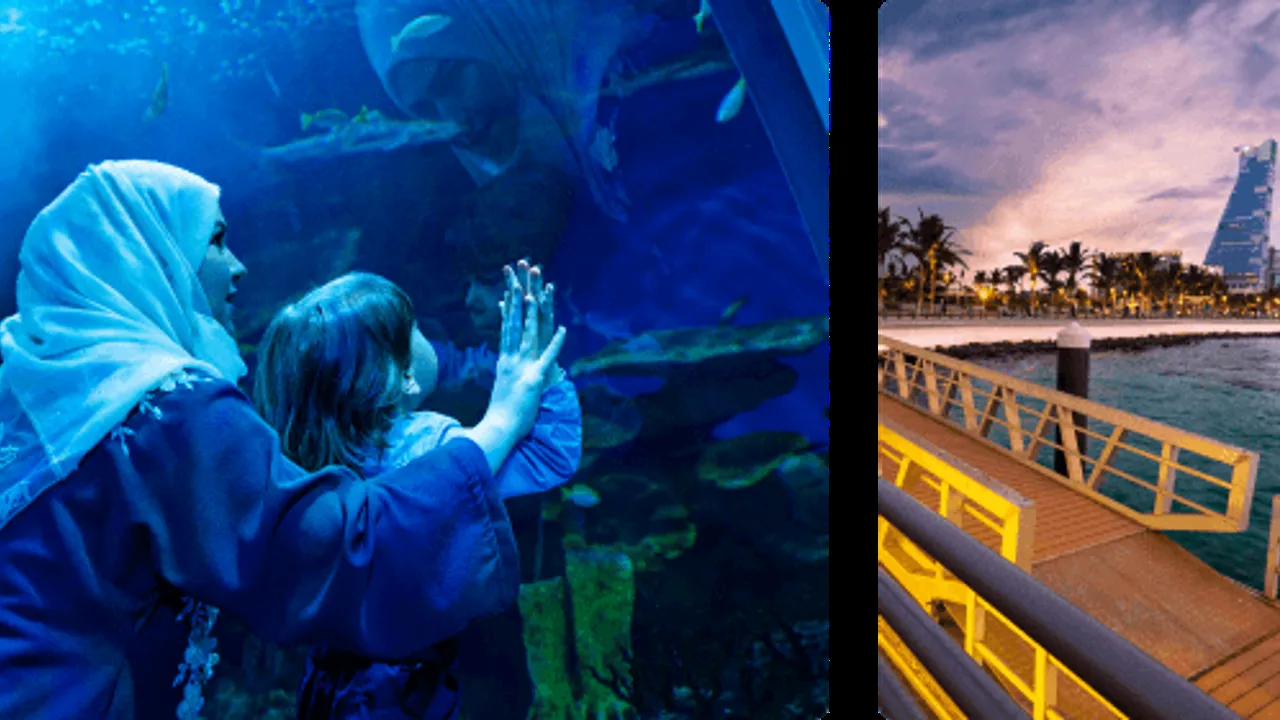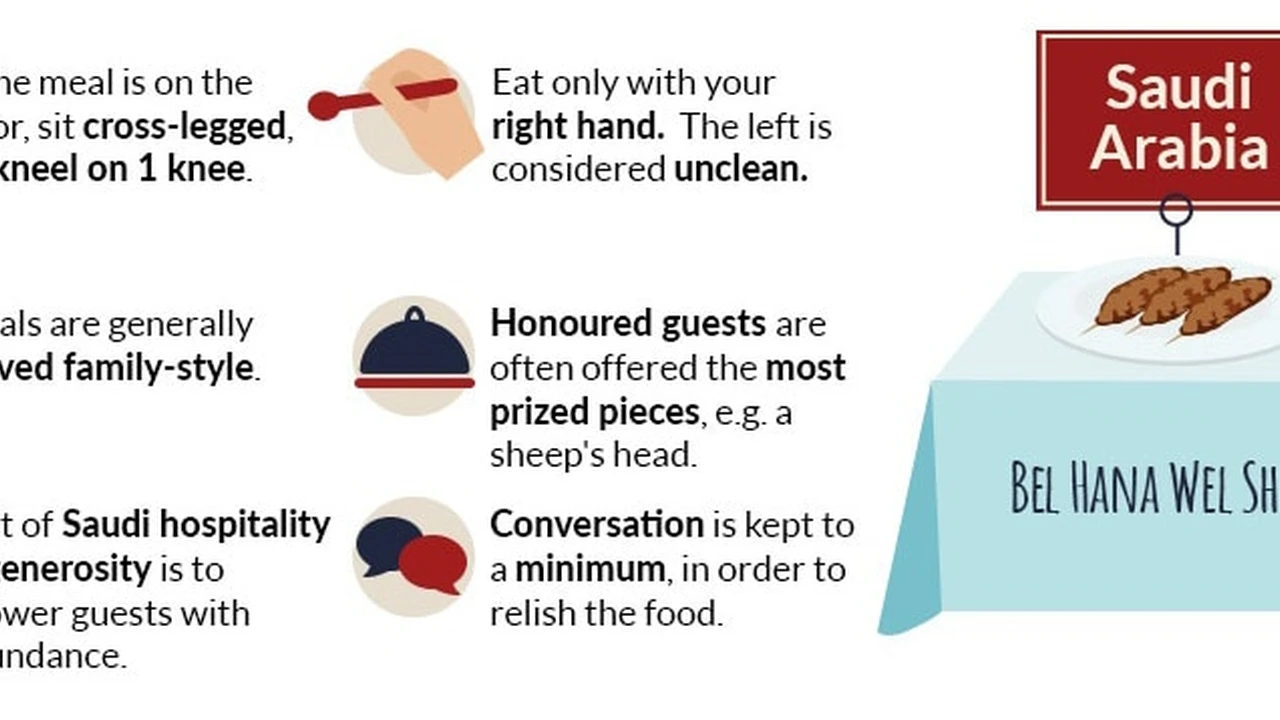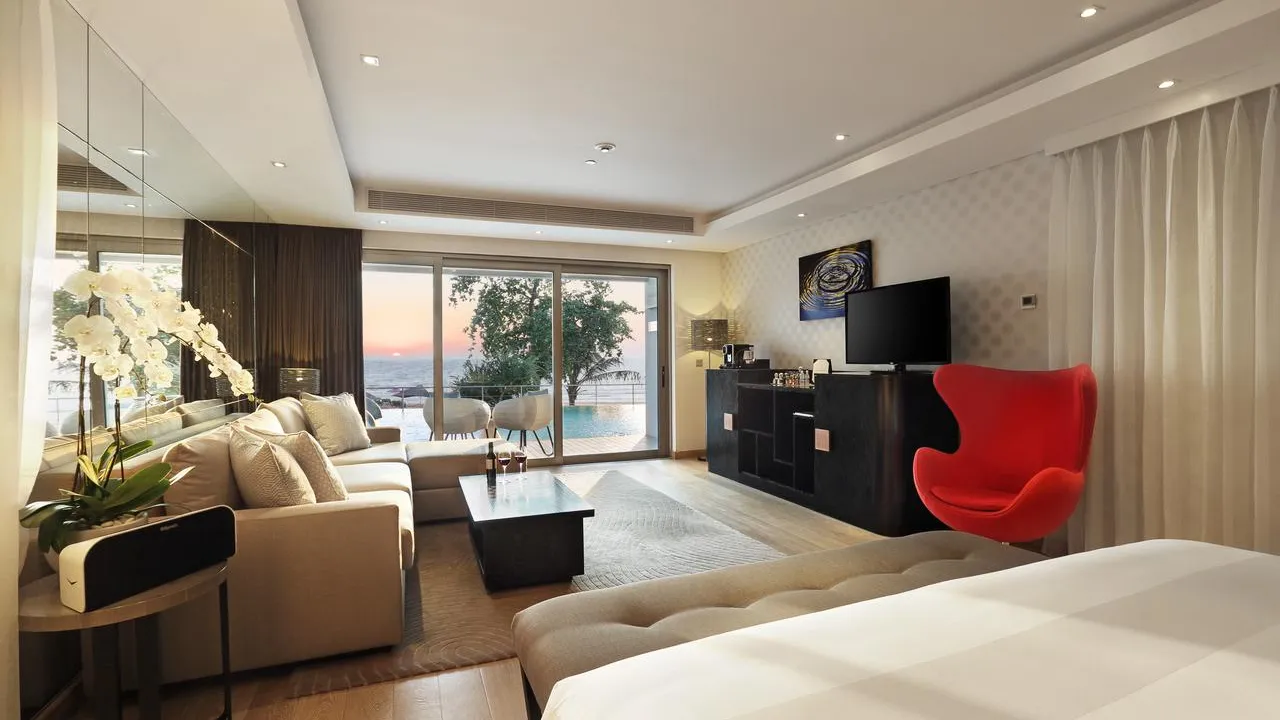
Sample meta description: Navigate Saudi Arabian culture with ease! Learn essential etiquette tips, cultural nuances, and practical advice for a respectful and enriching travel experience.
Understanding Saudi Arabian Culture A Foundation for Respectful Travel
Saudi Arabia, a land steeped in history and tradition, offers a captivating travel experience. However, to truly appreciate its beauty and avoid unintentional cultural faux pas, a solid understanding of Saudi Arabian culture is paramount. This isn't just about ticking off tourist attractions; it's about engaging respectfully with the local community and fostering positive interactions. Let's delve into the core aspects of Saudi culture that every traveler should be aware of.
The Importance of Religion in Saudi Society
Islam is the cornerstone of Saudi society. Daily life is deeply influenced by Islamic principles and practices. The five daily prayers are a significant part of the routine, and businesses may temporarily close during prayer times. It's respectful to refrain from eating, drinking, or smoking in public during these times, especially during Ramadan, the holy month of fasting.
Understanding the significance of mosques is also crucial. Non-Muslims are generally not permitted to enter mosques, except for certain historical mosques that are open to visitors with appropriate attire. Always dress modestly when visiting religious sites, covering your shoulders and knees.
Family Values and Social Interactions
Family plays a central role in Saudi culture. Extended families often live together or in close proximity, and family ties are incredibly strong. Hospitality is highly valued, and you may be invited to someone's home for a meal or tea. Accepting such invitations is a sign of respect and a wonderful opportunity to experience Saudi hospitality firsthand.
When interacting with Saudis, particularly those of the opposite gender, it's important to be mindful of cultural norms. Public displays of affection are generally not acceptable. If you are a man, it's best to avoid initiating physical contact with Saudi women unless they extend their hand first. Similarly, women should dress modestly and avoid overly revealing clothing.
Greetings and Communication Styles
Greetings in Saudi Arabia often involve a handshake and a verbal greeting, typically "As-salamu alaykum" (Peace be upon you), to which the response is "Wa alaykum as-salam" (And upon you be peace). It's polite to use your right hand when greeting someone or accepting something. The left hand is traditionally considered unclean.
Communication styles tend to be indirect and polite. Saudis often avoid direct confrontation or criticism, preferring to express disagreement or concerns in a more subtle manner. Patience and understanding are key to effective communication.
Essential Etiquette Tips for Saudi Arabia Respectful Behavior for Travelers
Now that we've laid the groundwork for understanding Saudi culture, let's move on to practical etiquette tips that will help you navigate social situations with grace and respect. These tips cover various aspects of daily life, from dress code to dining etiquette.
Dress Code Modesty is Key
Modesty in dress is essential in Saudi Arabia, particularly for women. Women are expected to dress conservatively, covering their shoulders and knees. Loose-fitting clothing is preferable. While headscarves are not legally required for foreign women in most public places, it's advisable to carry one with you, especially when visiting religious sites or more conservative areas.
Men should also dress modestly, avoiding shorts and sleeveless shirts in public. Long pants and shirts with sleeves are generally acceptable.
Dining Etiquette Sharing Meals and Cultural Norms
Dining is an important social activity in Saudi Arabia. Meals are often shared communally, with everyone eating from a large platter. It's customary to eat with your right hand, as the left hand is considered unclean. If utensils are provided, use them appropriately.
When offered food or drink, it's polite to accept, even if you only take a small portion. Refusing an offer can be seen as impolite. If you are full, you can politely decline by saying "Shukran" (Thank you).
It's also important to be mindful of your table manners. Avoid talking with your mouth full, and don't reach across the table for food. Wait for others to be served before you start eating.
Public Behavior Respecting Local Customs
Public behavior in Saudi Arabia is generally expected to be respectful and reserved. Avoid loud or boisterous behavior, and refrain from public displays of affection. It's also important to be mindful of your surroundings and avoid photographing people without their permission.
During the holy month of Ramadan, it's particularly important to be respectful of those who are fasting. Refrain from eating, drinking, or smoking in public during daylight hours.
Photography Guidelines Capturing Memories Responsibly
Photography in Saudi Arabia is subject to certain restrictions. It's generally prohibited to photograph government buildings, military installations, and airports. It's also important to be respectful of people's privacy and avoid photographing them without their permission.
When photographing women, it's particularly important to be sensitive. Avoid taking photos of women without their express consent. If you are unsure, it's always best to ask.
Navigating Specific Situations Practical Advice for Travelers
Now that we've covered the general principles of Saudi culture and etiquette, let's address some specific situations that travelers may encounter.
Interacting with Local Women Respectful Communication and Boundaries
Interacting with Saudi women requires sensitivity and respect for cultural norms. As a general rule, men should avoid initiating physical contact with Saudi women unless they extend their hand first. It's also important to maintain a respectful distance and avoid prolonged eye contact.
When communicating with Saudi women, speak politely and respectfully. Avoid asking personal questions or making assumptions about their beliefs or lifestyle. It's also important to be mindful of your body language and avoid any gestures that could be interpreted as disrespectful.
Bargaining in Markets A Guide to Haggling Respectfully
Bargaining is a common practice in Saudi markets, particularly in souks (traditional markets). However, it's important to bargain respectfully and avoid being overly aggressive. Start by offering a price that is lower than the asking price, but not ridiculously low. Be prepared to negotiate and be willing to walk away if you can't reach an agreement.
Remember that the goal of bargaining is to reach a fair price that both you and the seller are happy with. Avoid getting into arguments or being disrespectful. A smile and a friendly attitude can go a long way in reaching a successful bargain.
Tipping Customs When and How Much to Tip
Tipping is not as widespread in Saudi Arabia as it is in some other countries, but it is becoming increasingly common, particularly in tourist areas. It's customary to tip waiters in restaurants (around 10-15% of the bill), as well as taxi drivers (around 10% of the fare). You may also want to tip hotel staff who provide good service.
There is no fixed rule for tipping, so you can adjust the amount based on the quality of service you receive. If you are unsure whether to tip, it's always better to err on the side of generosity.
Language Essentials Basic Arabic Phrases for Travelers
While English is spoken in many tourist areas in Saudi Arabia, learning a few basic Arabic phrases can greatly enhance your travel experience. It shows respect for the local culture and can help you connect with people on a deeper level.
Greetings and Basic Phrases
- As-salamu alaykum (Peace be upon you) - The standard greeting.
- Wa alaykum as-salam (And upon you be peace) - The response to the greeting.
- Shukran (Thank you)
- Afwan (You're welcome)
- Na'am (Yes)
- La (No)
- Ma'a as-salama (Goodbye)
- Kaif halak? (How are you?) - To a man.
- Kaif halik? (How are you?) - To a woman.
- Bikhair, shukran (I'm fine, thank you)
- Ismi... (My name is...)
- Min fadlik (Please)
Phrases for Shopping and Dining
- Bikam hatha? (How much is this?)
- Hal tatakallam al-ingliziyya? (Do you speak English?)
- Ana la atakallam al-arabiyya (I don't speak Arabic)
- Ayna al-mat'am? (Where is the restaurant?)
- Ayna al-hammam? (Where is the bathroom?)
- Hal yujad qaima bil-ingliziyya? (Do you have a menu in English?)
Useful Apps and Resources for Language Learning
Several apps and online resources can help you learn basic Arabic phrases. Duolingo, Memrise, and Rosetta Stone are popular options. You can also find free Arabic language lessons on YouTube and other online platforms. Consider purchasing a phrasebook or a language dictionary to carry with you during your travels.
Recommended Products for a Comfortable and Respectful Trip
To ensure a comfortable and respectful trip to Saudi Arabia, consider packing the following items:
Modest Clothing Options for Men and Women
For women, loose-fitting clothing that covers the shoulders and knees is essential. Consider packing long skirts, dresses, and blouses with long sleeves. A lightweight scarf can be useful for covering your head when visiting religious sites. Brands like Uniqlo and H&M offer affordable and stylish modest clothing options. Consider the "Airism" line from Uniqlo for breathable fabrics in the hot climate.
For men, long pants and shirts with sleeves are generally acceptable. Avoid shorts and sleeveless shirts in public. Lightweight and breathable fabrics are recommended. Brands like Columbia and Patagonia offer durable and comfortable travel clothing.
Travel-Sized Prayer Rug A Portable Option for Muslims
For Muslim travelers, a travel-sized prayer rug can be a valuable item. It allows you to pray comfortably and respectfully in public places. Many online retailers offer lightweight and portable prayer rugs in various designs and materials. Look for options made from microfiber or nylon for easy cleaning and portability.
Product Recommendation: "My Salah Mat" - a padded prayer mat designed for comfort and ease of use, especially beneficial for those with joint pain or difficulty kneeling. Available on Amazon for around $30.
Portable Charger Keeping Your Devices Powered
A portable charger is essential for keeping your devices powered while you're on the go. Saudi Arabia has a reliable electricity grid, but power outages can occur. A portable charger ensures that you can stay connected and access important information, even when you don't have access to an outlet.
Product Comparison: Anker PowerCore 10000 (compact and reliable) vs. Mophie Powerstation PD (faster charging and higher capacity). Anker is typically priced around $25, while Mophie can range from $40-$60 depending on the model.
Use Case: Essential for navigating using Google Maps, translating Arabic phrases, and staying in touch with family and friends.
Universal Travel Adapter Ensuring Compatibility
Saudi Arabia uses Type G plugs (British standard), so you'll need a universal travel adapter if your devices use a different plug type. A universal travel adapter ensures that you can plug your devices into any outlet, regardless of the plug type.
Product Detail: Look for adapters with surge protection to protect your devices from power fluctuations. Many adapters also include USB ports for charging multiple devices simultaneously. Brands like EPICKA and BESTEK offer reliable and versatile travel adapters.
Sunscreen and Insect Repellent Protecting Yourself from the Elements
Saudi Arabia can be very hot and sunny, so sunscreen is essential for protecting your skin from the sun's harmful rays. Choose a sunscreen with a high SPF (30 or higher) and apply it liberally to all exposed skin. Insect repellent is also recommended, particularly if you plan to spend time outdoors in the evenings.
Product Recommendation: Sun Bum Original SPF 30 Sunscreen (broad spectrum protection and reef-friendly formula) and OFF! Deep Woods Insect Repellent (effective against mosquitoes and other biting insects).
Addressing Common Concerns and Misconceptions About Saudi Arabia
Before traveling to Saudi Arabia, many people have concerns and misconceptions about the country. Let's address some of the most common ones.
Safety and Security Concerns Reassuring Travelers
Saudi Arabia is generally a safe country for tourists. The government has invested heavily in security measures to protect visitors. However, it's always important to be aware of your surroundings and take precautions to protect yourself from crime. Avoid walking alone at night in unfamiliar areas, and be wary of scams or pickpockets.
It's also important to be aware of the political situation in the region and avoid areas that are known to be unstable. Check travel advisories from your government before you travel, and stay informed about any potential risks.
Misconceptions About Women's Rights Clarifying the Reality
There are many misconceptions about women's rights in Saudi Arabia. While women in Saudi Arabia face certain restrictions, significant progress has been made in recent years. Women are now allowed to drive, and they have more opportunities for education and employment.
It's important to avoid making generalizations about Saudi women and to respect their choices and beliefs. Many Saudi women are highly educated and successful professionals who are proud of their culture and traditions.
The Role of Tourism in Saudi Arabia's Vision 2030
Saudi Arabia is actively promoting tourism as part of its Vision 2030 plan, which aims to diversify the economy and reduce its reliance on oil. The government is investing heavily in tourism infrastructure, including new hotels, resorts, and attractions.
As tourism grows in Saudi Arabia, it's important for travelers to be respectful of the local culture and environment. By engaging responsibly with the local community, we can help to ensure that tourism benefits both visitors and residents.
Embracing the Saudi Arabian Experience A Journey of Discovery
Traveling to Saudi Arabia is an opportunity to immerse yourself in a rich and fascinating culture. By understanding and respecting local customs and etiquette, you can create meaningful connections with the Saudi people and have an unforgettable travel experience. Embrace the adventure, be open to new experiences, and prepare to be amazed by the beauty and hospitality of Saudi Arabia.
Remember to pack your patience, your curiosity, and your respect. Saudi Arabia is a land of contrasts, where ancient traditions meet modern aspirations. By embracing this duality, you can gain a deeper appreciation for the country and its people.
Beyond the Tourist Trail Exploring Hidden Gems and Authentic Experiences
While popular tourist destinations like Riyadh and Jeddah offer a glimpse into Saudi Arabia's modern side, venturing beyond the well-trodden path can reveal hidden gems and authentic experiences. Consider exploring the ancient city of Al-Ula, with its stunning rock formations and Nabataean tombs, or the Empty Quarter, the largest sand desert in the world.
Al-Ula A Journey Through Ancient History
Al-Ula, located in northwestern Saudi Arabia, is a region rich in history and natural beauty. The area is home to Hegra, a UNESCO World Heritage site that features well-preserved tombs and monuments dating back to the Nabataean civilization. Explore the sandstone mountains, canyons, and valleys that make up the unique landscape of Al-Ula. Consider taking a guided tour to learn more about the history and culture of the region.
The Empty Quarter Experiencing the Majesty of the Desert
The Empty Quarter, also known as Rub' al Khali, is the largest sand desert in the world. Covering an area of over 250,000 square miles, the Empty Quarter offers a truly unique and awe-inspiring experience. Explore the towering sand dunes, which can reach heights of over 1,000 feet, and witness the stunning sunsets that paint the desert sky in vibrant colors. Consider taking a guided desert safari to experience the Empty Quarter safely and comfortably.
Local Festivals and Events Immersing Yourself in Saudi Culture
Throughout the year, Saudi Arabia hosts a variety of local festivals and events that offer a glimpse into the country's rich culture and traditions. Consider attending the Janadriyah National Festival, a celebration of Saudi heritage and culture, or the Riyadh Season, a multi-month entertainment extravaganza featuring concerts, theatrical performances, and sporting events. Check local listings for upcoming events during your travels.
Sustainable Travel in Saudi Arabia Minimizing Your Impact
As tourism grows in Saudi Arabia, it's important to travel sustainably and minimize your impact on the environment and local communities. Here are some tips for responsible travel in Saudi Arabia:
Respecting the Environment Preserving Natural Beauty
When visiting natural sites in Saudi Arabia, such as deserts, mountains, and beaches, be sure to respect the environment. Avoid littering, stay on marked trails, and avoid disturbing wildlife. Consider supporting local conservation efforts by donating to environmental organizations or participating in volunteer activities.
Supporting Local Businesses Contributing to the Economy
Support local businesses by buying souvenirs, eating at local restaurants, and staying at locally owned hotels. This helps to boost the local economy and create jobs for residents. Avoid purchasing counterfeit goods or supporting businesses that exploit workers or harm the environment.
Conserving Resources Reducing Waste and Energy Consumption
Conserve resources by reducing waste and energy consumption during your travels. Use reusable water bottles, avoid single-use plastics, and turn off lights and appliances when you leave your hotel room. Consider using public transportation or walking instead of driving whenever possible.
The Future of Tourism in Saudi Arabia A Glimpse into Vision 2030
Saudi Arabia's Vision 2030 plan includes ambitious goals for the tourism sector. The government aims to attract 100 million visitors annually by 2030 and increase the tourism sector's contribution to the GDP to 10%. To achieve these goals, the government is investing heavily in tourism infrastructure, promoting sustainable tourism practices, and easing visa restrictions for foreign visitors.
New Tourism Projects and Developments
Several large-scale tourism projects are currently underway in Saudi Arabia, including Neom, a futuristic city being built in the northwest of the country, and the Red Sea Project, a luxury tourism development featuring pristine beaches, coral reefs, and mangrove forests. These projects aim to attract high-end tourists and create new jobs for Saudi citizens.
Easing Visa Restrictions Making Travel Easier
The Saudi government has been easing visa restrictions for foreign visitors in recent years. In 2019, the country introduced e-visas for citizens of 49 countries, making it easier for tourists to visit Saudi Arabia. The government has also announced plans to introduce more visa options in the future, including a transit visa that will allow travelers to stop over in Saudi Arabia for up to 96 hours.
Promoting Sustainable Tourism Practices Ensuring Long-Term Growth
The Saudi government is committed to promoting sustainable tourism practices to ensure the long-term growth of the tourism sector. The government is investing in renewable energy sources, promoting water conservation, and protecting natural resources. It is also working with local communities to develop tourism products that benefit both visitors and residents.
:max_bytes(150000):strip_icc()/277019-baked-pork-chops-with-cream-of-mushroom-soup-DDMFS-beauty-4x3-BG-7505-5762b731cf30447d9cbbbbbf387beafa.jpg)






